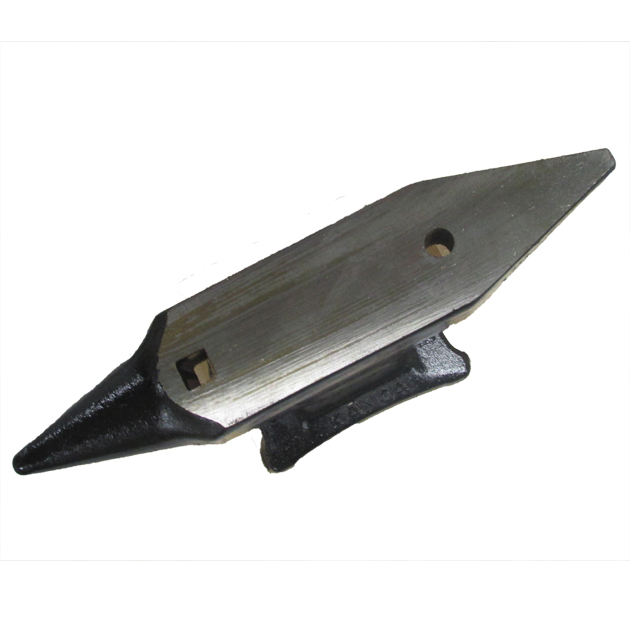
Where do you live by the way? Anvils are much more common east of the Mississippi, and more common in Ohio than Indiana. I'm sure somebody will come along here and give you some good advice. They had severl pair of huge tines, like 7' or so that sold for $400, $600, and so on, but I think the standard size tines, and they had about three pair at various points, all sold for less than $100. These are a famous anvil substitute, cut to the proper length and mont in a bucket of cement. Forging anvils are also known as blacksmiths or general shop anvils. Example, a heavy 4 pound (1800g) hammer and a 200 pound (90kg) anvil are a good match. For forging an average hand hammer to anvil ratio of about 50:1 is normal. They had several sets of fork lift tines. The size of the anvil should be proportional to the work and the hammer used to perform that work. I also went to a different aution today, where they sold lots of heavy equipment and lots of junk. I ask her to look at it, it was a Peter Wright (124 = 172 pounds) with fairly good lines and two hardy tools. It is a Russian made, 110 pound European style anvil. My wife called me today from an auction to ask we if I would be interested in the anvil they were going to sell. The club has purchased a small cast STEEL anvil from Harbor Freights store in OKC. On the other hand, I've heard a lot of stories on these sites that if you tell everybody you see that you're looking for an anvil, that one will show up, and pretty cheap. I never ran into a better piece of steel or a loose anvil util I went to a hammer in, 2 or 3 years later and bought a $200 Peter Wright. Personally, when my son and I got interesed, we got a piece of railroad rail from a man in my son's sword figthing school, who worked for the rail road. Large steel is not common, and new large steel is expensive.

You either have to spend time or money to get an anvil, or a suitable piece of steel. I guess people must be tired of answering it. This is one of the most frequent questions. It is excellent for riveting, flattening, forging, and forming metal.Funny that you've only got three reponses so far. It is widely used by metalworkers and smiths in any metal shop. Wide Application: The anvil is ideal for hammering, straightening, and for shaping workpieces.The wide countertop and flat surface provide a better user experience.

Rounded horn and flat horn are for smooth bending and shaping the holes are better for accessories punching and. Large Working Area: This anvil metal 110 lbs/50 kg forge comes with a comfortable and wide work surface, giving a large working area. This steel anvil has two horns and holes.And the spray coating effectively relieves the oxidation reaction. Premium Material 110 lbs: This steel anvil is made of drop-forged, high-grade steel, which features high hardness, strength, and durability. Polishing Treatment: With fully polished surface area, the blacksmith anvil is corrosion-proof and services long-lasting use through quenching treatment.I tried one of the 'Ugly Ivan' 110lb anvils a few years ago and liked it quite a bit.


On the other hand the 55 pound HF anvil is cast iron and not even a good boat anchor. I passed that anvil on to a student who is thrilled with it. And the hardy hole and pritchel hole can show a good performance in accessories? punching and twisting. Yes its a bit soft but if you keep hotmetal between the hammer and anvil it isnt a problem. Holes & Horns for Different Uses: Round horn and the flat horn of the anvil blacksmith are used for smoothing, bending, and shaping.Our steel anvil blacksmith has excellent grade material of 55 HRC. Premium Material 110 lbs: This steel anvil is made of drop-forged, high-grade steel, which features high hardness, strength, and durability.


 0 kommentar(er)
0 kommentar(er)
